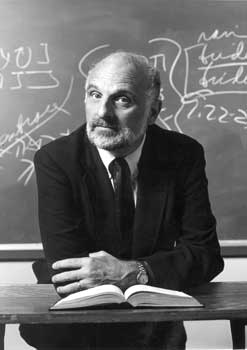A Prophetic Community
 I have recently finished reading Prophetic Imagination by Walter Brueggemann, a great little book (151 pages) on the role of Old Testament prophets. I have been reading Brueggemann to supplement my study of the book of Amos for my current teaching series “When God Roars,” a verse-by-verse preaching series through Amos. I have developed a wonderful habit of teaching through a New Testament book, then preaching a topical series, and then preaching through an Old Testament book. Preaching expository (i.e. verse-by-verse) sermons has been extremely beneficial for me and our church. I spent some time this morning in the sermon from Amos 4 entitled “Return to Me” developing themes I have learned from Brueggemann.
I have recently finished reading Prophetic Imagination by Walter Brueggemann, a great little book (151 pages) on the role of Old Testament prophets. I have been reading Brueggemann to supplement my study of the book of Amos for my current teaching series “When God Roars,” a verse-by-verse preaching series through Amos. I have developed a wonderful habit of teaching through a New Testament book, then preaching a topical series, and then preaching through an Old Testament book. Preaching expository (i.e. verse-by-verse) sermons has been extremely beneficial for me and our church. I spent some time this morning in the sermon from Amos 4 entitled “Return to Me” developing themes I have learned from Brueggemann.
Here is the big idea:
God’s desire has always been to form an alternative community of righteousness and justice.
This was the mosaic vision. Moses led God’s people out of Egypt and received the torah in order to form an alternative community. God wanted to form a community as a reflection of his own nature. God is a holy community of Father, Son, and Holy Spirit.
God is a community builder :
- He built a family community (Abraham – Isaac – Jacob)
- He built a national community (Israel)
- He built a multi-ethnic community (the Church: Jews and Gentiles)
God wanted his community to be an alternative community, a community called out by God to be different. This is also a reflection of God’s nature. He is holy (separate, different, other) and he wants his alternative community to be alternative, utterly different than the pagan nations of the earth.
This alternative community is a community of righteousness and justice, where God’s people live in right relationship with God (righteousness) and in right relationship with other people (justice). The ultimate of God’s community-building enterprise was completed in Jesus. There is none righteous, no not one (Romans 3). We are completely helpless and hopeless within ourselves. The good news (gospel) of Jesus is that we are sinners. We are unrighteous, unholy, evil, bad, and morally bankrupt. Well that is the first part of the good news. The completion of the good news is that Jesus came to earth. He lived a perfect life. He died, was buried, and was risen from the death in order to make us righteous (2 Corinthians 5:21).
The role of prophets, according to Brueggemann is to form and reform this kind of community by both criticizing the status quo and energizing God’s people to reimage new kind of future, a hopeful future.
Brueggemann writes: “It is the vocation of the prophet to keep alive the ministry of imagination, to keep on conjuring and proposing futures alternative to the single one the king wants to urge as the only thinkable one” (40). Solomon’s empire-building vision destroyed the mosaic vision of the alternative community. Solomon build an empire like the empires of the pagan nations. This “royal consciousness” keeps God’s people distracted for God’s desire for the alternative community.
Prophets are critical in that they question the status quo both in the greater culture and within God’s community of faith. They do poke and prod the numbness of the empire (Bruegemann’s term for devotion to the empire is “royal consciousness.”) with a critical voice. Amos called the women of Samaria “cows of Bashan” (Amos 4:1). They do this in order to call God’s people to question the status quo.
Prophets are predictive, but their predictive ministry is designed to forecast a better future, one built on righteousness and justice. Their purpose is to energize God’s people by giving them a future filled with the newness of God.
God is still forming and reforming a community (or communities) of faith around the world. We would be well served if we remain open to God’s prophetic voices. I believe Brueggemann is one of those voices.